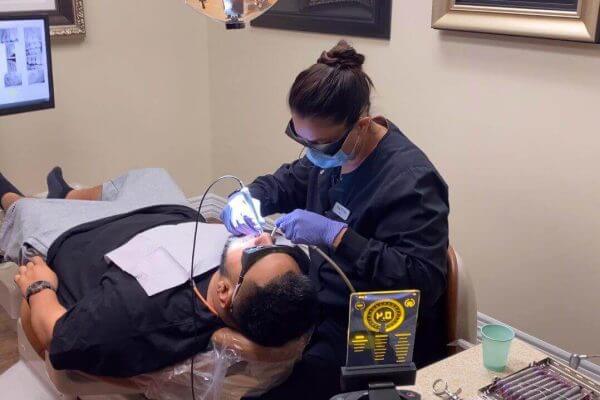Welcome to Lakefront Family Dentistry, a cornerstone of dental excellence in Riverside County, California. Led by Dr. Derek Hauser, DDS, and Dr. Mark Phillipe, DDS, our gorgeous private dental practice has been transforming smiles for over three decades.
What is Dental Enamel Hypoplasia
– Understanding the Condition: Dental enamel hypoplasia is a condition characterized by thin or absent enamel. It can lead to various dental issues and affect one’s appearance and confidence.
– Our Comprehensive Care: We are committed to providing effective solutions for dental enamel hypoplasia, tailoring our approach to each patient’s unique needs.
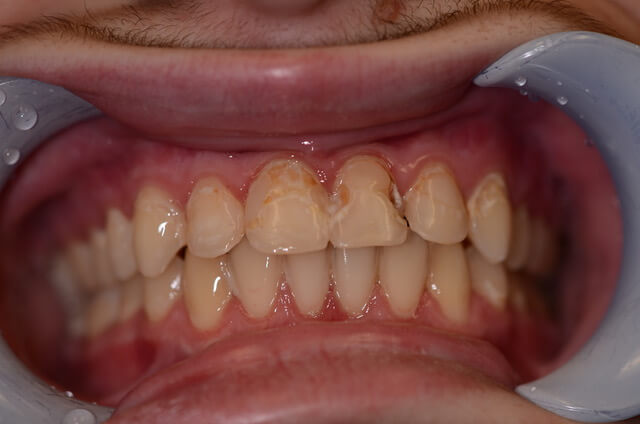
In the following sections, we will explore dental enamel hypoplasia in detail, discussing its causes, impacts, and the latest dental treatments available at Lakefront Family Dentistry.
Understanding Dental Enamel Hypoplasia
Dental enamel hypoplasia is a condition that affects the outermost layer of teeth. It’s essential to understand what this condition entails, how it manifests, and its potential causes. Here at Lakefront Family Dentistry, we believe in educating our patients to foster a deeper understanding of their dental health.
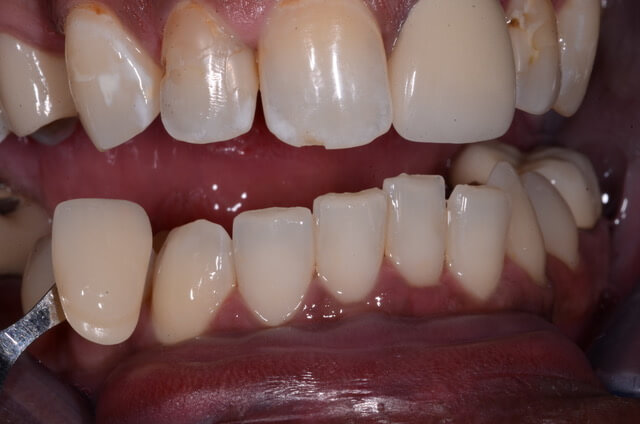
Definition of Dental Enamel Hypoplasia
– Basic Understanding: Enamel hypoplasia is a defect of the enamel that results in its incomplete or faulty formation. This condition leads to enamel that is thinner and weaker than normal, or in some cases, completely absent.
Characteristics of Dental Enamel Hypoplasia
– Appearance: The condition can manifest as pits, grooves, or thin areas in the tooth enamel. It may affect only part of a tooth or multiple teeth.
– Vulnerability: Teeth affected by enamel hypoplasia are more prone to dental problems like decay and sensitivity due to their reduced strength and protective capabilities.
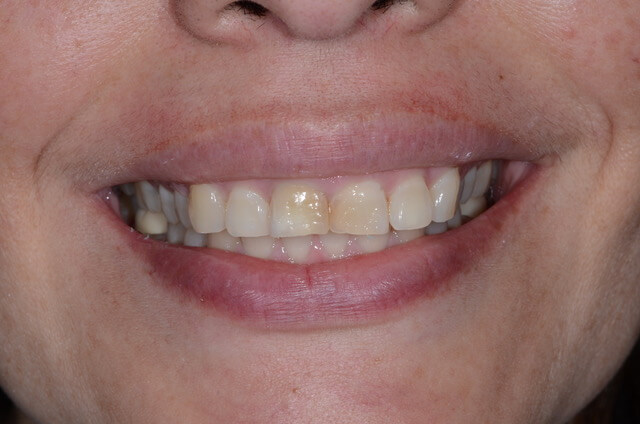
Causes and Risk Factors
– Genetic Factors: In some instances, enamel hypoplasia can be a result of genetic predispositions.
– Environmental Influences: Factors such as nutritional deficiencies (especially during teeth development), illnesses during childhood, or exposure to certain environmental toxins can contribute to the development of this condition.
– Importance of Early Detection: Early identification of these risk factors can play a crucial role in prevention and management.
Understanding the basics of dental enamel hypoplasia is the first step towards effective management and treatment. In the following sections, we will discuss the impacts of this condition, how it can be diagnosed, and the advanced treatment options available at Lakefront Family Dentistry with Dr. Phillipe and Dr. Hauser. Our approach is not just about treatment but also about prevention and ensuring the long-term health and beauty of your smile.
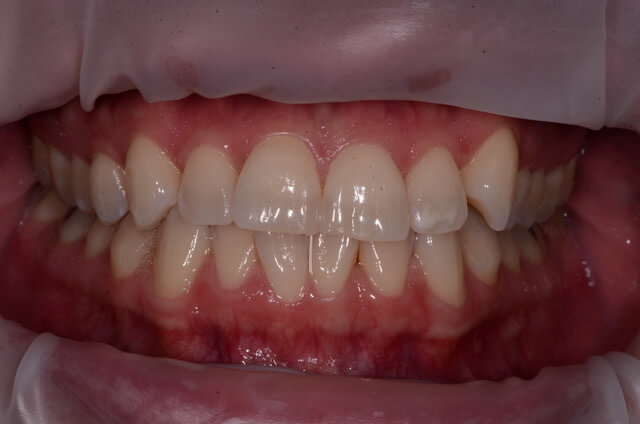
Impact of Dental Enamel Hypoplasia
Dental enamel hypoplasia, while primarily a dental issue, can have broader implications for an individual’s oral health and overall well-being. Understanding these impacts is vital for appreciating the importance of timely and effective treatment. At our private dental office in Lake Elsinore, we approach each case of enamel hypoplasia with a comprehensive view, considering both the physical and psychological aspects of the condition.
Physical Impacts
– Increased Sensitivity and Decay: The thin or absent enamel in hypoplasia makes teeth more susceptible to cavities and decay. This can lead to pain, discomfort, and a higher risk of tooth loss.
– Functional Challenges: Affected teeth may be weaker and more prone to damage, impacting the patient’s ability to eat and speak comfortably.
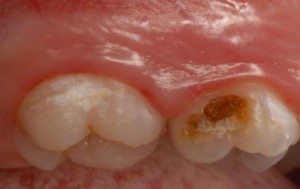
Aesthetic Concerns
– Appearance of Teeth: Enamel hypoplasia can cause noticeable discoloration, pits, and grooves, which may affect the appearance of one’s smile.
– Self-Confidence: The visible signs of enamel hypoplasia can impact an individual’s self-esteem and confidence, especially in social interactions.
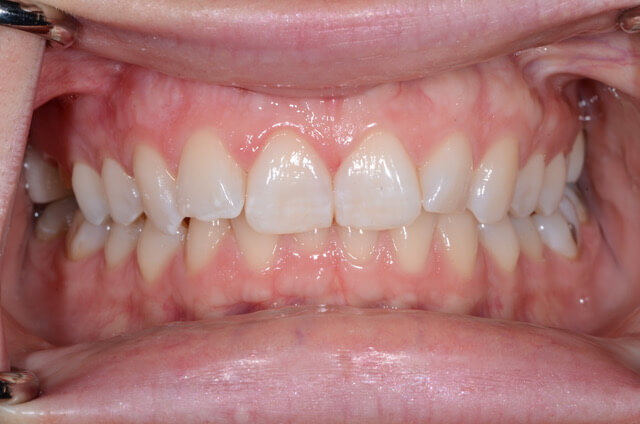
Dental Health Complications
– Long-Term Risks: If left untreated, enamel hypoplasia can lead to more severe dental conditions, requiring more complex treatments in the future.
– Holistic Health Considerations: Oral health significantly impacts overall health. Complications from enamel hypoplasia can indirectly affect other aspects of health.
Psychological and Social Implications
– Social Perception and Interaction: The appearance of one’s teeth can influence personal and professional interactions, potentially affecting social opportunities and relationships.
– Mental Health: Concerns about dental appearance can lead to anxiety and self-consciousness, underscoring the importance of addressing aesthetic issues alongside functional ones.
At Lakefront Family Dentistry, Dr. Mark G. Phillipe, DDS, and Dr. Derek B. Hauser, DDS, recognize that the impacts of dental enamel hypoplasia extend beyond the teeth. Our treatment plans are designed not only to address the physical manifestations of the condition but also to improve our patients’ overall quality of life.
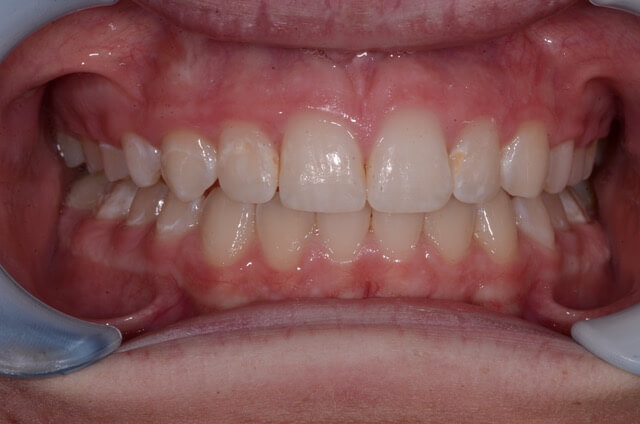
Diagnosis and Self-Assessment of Dental Enamel Hypoplasia
Early detection and accurate diagnosis of dental enamel hypoplasia are crucial for effective treatment and management. At Lakefront Family Dentistry, we emphasize the importance of professional evaluation while also guiding our patients on how to recognize potential signs of the condition.
Recognizing Signs of Enamel Hypoplasia
– Visual Indicators: Patients may notice irregularities in their teeth, such as pits, grooves, or areas where the enamel erosion appears thinner.
– Sensitivity: Increased sensitivity to hot, cold, or sweet foods can be a sign of enamel hypoplasia, as the protective enamel layer is compromised.
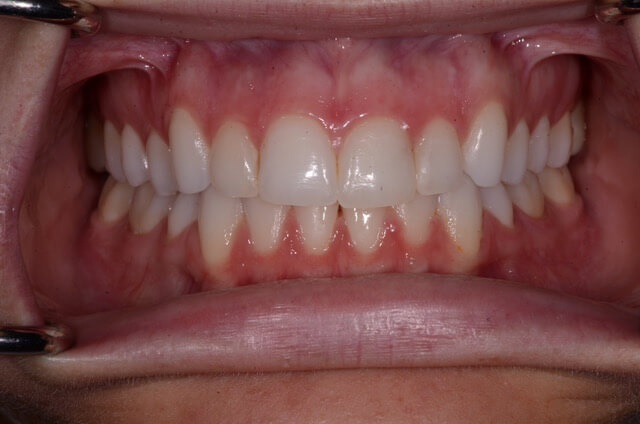
Limitations of Self-Assessment
– Need for Professional Diagnosis: While self-assessment can help in early detection, it is not a substitute for a professional dental evaluation. Some signs may be subtle and require expert examination.
– Misdiagnosis Risks: Self-assessment without professional guidance might lead to misinterpretation of symptoms, delaying proper treatment.
Professional Diagnostic Techniques at Lakefront Family Dentistry
– Comprehensive Dental Examination: Our team conducts thorough dental exams, using state-of-the-art equipment to assess the condition of the enamel.
– Imaging Technologies: We utilize advanced imaging technologies with our Panoramic 3D X-ray imaging to get a detailed view of the enamel and underlying structures.
– Assessment of Medical and Dental History: Understanding the patient’s medical and dental history helps in identifying potential causes or contributing factors to enamel hypoplasia.
Importance of Regular Dental Check-ups
– Early Detection: Regular visits to Lakefront Family Dentistry allow for the early detection of enamel hypoplasia and other dental issues.
– Preventive Care: Routine check-ups and professional teeth cleaning are essential in preventing the progression of enamel hypoplasia and maintaining overall oral health.
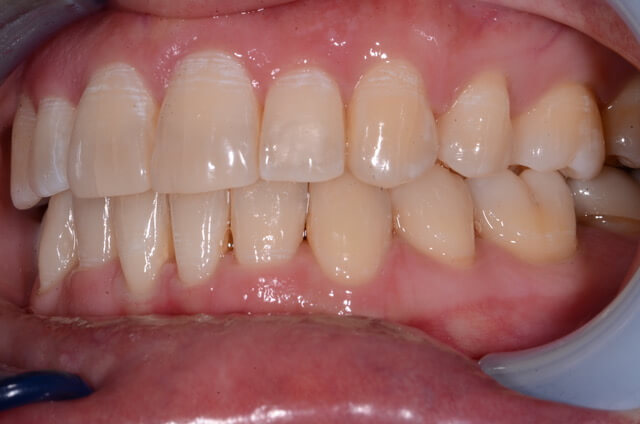
Professional Treatment Options for Dental Enamel Hypoplasia
At Lakefront Family Dentistry, we offer a variety of advanced treatment options for dental enamel hypoplasia. Each treatment plan is customized to address the specific needs and circumstances of our patients, ensuring the best possible outcomes.
Restorative Treatments
– Porcelain Crowns and Veneers: Utilizing CEREC technology, we offer same-day porcelain crowns and veneers. These restorations are ideal for covering and protecting areas with enamel defects, enhancing both function and aesthetics.
– Composite Resin Fillings: For minor defects, composite resin can be used to fill pits and grooves, restoring the integrity of the tooth surface.
Preventive Measures
– Sealants: To protect vulnerable areas of teeth from decay, dental sealants can be applied. This is particularly useful in preventing further damage in teeth affected by enamel hypoplasia.
– Fluoride Treatments: Regular fluoride treatments can help strengthen remaining enamel, making it more resistant to decay.
Innovative Laser Technology
– Solea Laser Treatments: The Solea Dental Laser offers a pain-free option for various dental procedures, including the treatment of teeth affected by enamel hypoplasia. It’s especially beneficial for patients who are anxious about dental procedures.

Tailored Treatment Approaches
– Individual Assessment: Each case of enamel hypoplasia is unique, and our team takes the time to thoroughly assess the specific needs of each patient.
– Collaborative Decision-Making: We involve our patients in the treatment planning process, ensuring that they are fully informed and comfortable with the proposed treatment approach.
Maintenance and Follow-Up Care
– Regular Check-Ups: Ongoing dental care is important for monitoring the condition and preventing further enamel deterioration.
– Patient Education: We provide our patients with the knowledge and tools they need to maintain their dental health post-treatment, including proper oral hygiene practices and dietary advice.
Preventive Measures and Maintenance for Dental Enamel Hypoplasia
Prevention and ongoing maintenance are key aspects of managing dental enamel hypoplasia. Our dentists and registered dental hygienists emphasize the importance of proactive care to mitigate the effects of this condition and maintain overall oral health.
Effective Oral Hygiene Practices
– Regular Brushing and Flossing: Consistent and proper oral hygiene routines are essential to protect teeth from decay, especially those affected by enamel hypoplasia.
– Use of Fluoridated Toothpaste: Fluoride helps in remineralizing and strengthening the enamel, offering additional protection against cavities.
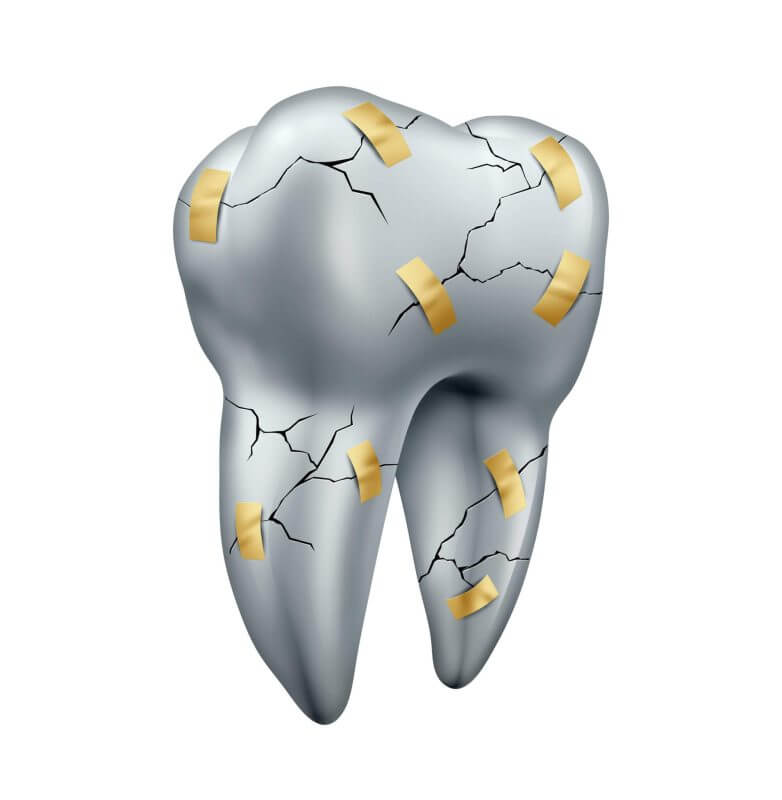
Dietary Considerations
– Limiting Sugary and Acidic Foods: Reducing the intake of foods and beverages that can erode enamel is crucial in preventing further damage.
– Nutrient-Rich Diet: A balanced diet, rich in vitamins and minerals, supports overall dental health and can help in maintaining healthy enamel.
Regular Dental Check-Ups and Cleanings
– Routine Visits: Regular visits to Lakefront Family Dentistry for check-ups and cleanings are vital in early detection and management of enamel hypoplasia.
– Professional Monitoring: Our dentists will monitor the progression of the condition and adjust the treatment plan as necessary.
No Dental Insurance? No Problem.
– Accessibility: This package is particularly beneficial for patients with no dental insurance, ensuring they receive necessary dental care.
– Comprehensive Care: It includes 10% off procedures, comprehensive dental exams, regular check-ups, 2 to 4 professional teeth cleanings annually, and other preventive services, which are key in managing enamel hypoplasia.
Patient Education and Empowerment
– Understanding the Condition: We educate our patients about enamel hypoplasia, its causes, and its effects, empowering them to make informed decisions about their dental health.
– Tailored Advice: Each patient receives personalized advice on how to best care for their specific dental needs.
FAQs About Dental Enamel Hypoplasia
Here are some of the most common questions about dental enamel hypoplasia to help patients better understand this condition. At Lakefront Family Dentistry, we believe informed patients are empowered to take active roles in their dental health care.
1. What exactly is dental enamel hypoplasia?
– Dental enamel hypoplasia is a developmental condition where the enamel (the hard, outer layer of the tooth) is thinner than normal or absent. This can lead to various dental problems, including increased sensitivity and susceptibility to decay.
2. How can I tell if I have enamel hypoplasia?
– Signs of enamel hypoplasia includes visible pits or grooves in the teeth, thin or translucent areas of enamel, and increased sensitivity to temperature or sweetness. However, a professional dental examination is necessary for an accurate diagnosis.
3. What causes dental enamel hypoplasia?
– Causes can be genetic or environmental. Environmental factors include nutritional deficiencies, especially during the time teeth are developing, certain illnesses in childhood, and exposure to environmental toxins.
4. Can dental enamel hypoplasia be prevented?
– While genetic factors can’t be changed, minimizing environmental risks can help. This includes ensuring a diet rich in essential nutrients during teeth development and avoiding exposure to harmful environmental factors.
5. What treatment options are available at Lakefront Family Dentistry?
– We offer a range of treatments including porcelain crowns and veneers using CEREC technology, composite resin fillings, sealants, and fluoride treatments. The choice of treatment depends on the severity and location of the enamel hypoplasia.
6. Is enamel hypoplasia treatment painful?
– We strive to make all treatments as comfortable as possible. For many procedures, we use the Solea Laser, which is often pain-free and does not require numbing.
7. How often should I visit the dentist if I have enamel hypoplasia?
– Regular dental check-ups are crucial. The frequency of visits can vary based on individual needs, but generally, biannual check-ups are recommended.
8. Can children get enamel hypoplasia?
– Yes, children can be affected by enamel hypoplasia. Early detection and treatment are important to prevent long-term dental issues.
9. Does Lakefront Family Dentistry offer dental financing for treatment?
– Yes, we offer various dental financing options including Care Credit and Lending Club for those who qualify, in addition to accepting PPO dental insurance.
10. How can I maintain my dental health after treatment for enamel hypoplasia?
– Maintaining good oral hygiene practices, regular dental check-ups, and following a diet that supports dental health are key. Our team provides personalized advice for each patient.
Our team at Lakefront Family Dentistry is always ready to provide more information and answer any other questions you may have about dental enamel hypoplasia or any other dental concerns.
Our Dentists’ Expertise:
– Dr. Derek Hauser, DDS, and Dr. Mark Phillipe, DDS: With over 40 years of combined experience, our dentists have established themselves as leaders in the field of dentistry. Their dedication to patient care and expertise in advanced dental techniques set Lakefront Family Dentistry apart.

– State-of-the-Art Dental Technology Office and Services: We offer a range of advanced dental services, including CEREC cosmetic dentistry, allowing us to provide same-day porcelain crowns and veneers in just 2-3 visits.
Patients are Part of Our Extended Family
– Plan for Health: Understanding that dental insurance is not accessible to everyone, we offer the Plan for Health annual dentist package, designed specifically for patients with no dental insurance.
– Insurance and Financing: We accept PPO dental insurance and provide financing options like Care Credit and Lending Club for those who qualify, ensuring our services are accessible to a wider community.
Innovative Dental Solutions
– Solea Laser Technology: At Lakefront Family Dentistry, we employ the latest in dental technology, such as the Solea Laser. This allows us to perform tooth fillings without numbing, provide pain-free laser treatments for frenectomies with babies, and conduct efficient gingivectomy treatments.
Request an Appointment
Our appointments fill up quickly, but new patients can call (951) 244-9495 to request a dental appointment with Dr. Mark Phillipe, DDS, or Dr. Derek Hauser, DDS, during business hours or fill out our confidential, HIPAA compliant form through our website anytime of day or night.


